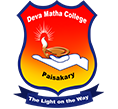Examinations
- The Evaluation Scheme for each Subject shall contain two parts, namely, Internal Assessment (IA) and the End Semester Evaluation (ESE). 20% weight shall be given to the Internal Assessment, and the remaining 80% for the External Evaluation.
- A candidate securing 40% (Grade E) of the aggregate Marks and 40% separately for ESE for each Course shall be declared to have passed in the Course. An aggregate of 40% Marks (for the Internal and the External put together) is required in each Course for a pass.
- Appearance for the Internal Assessment (IA) and the End Semester Evaluation (ESE) are compulsory and no grade shall be awarded to the candidate if she/he is absent for IA/ESE or both.
- A student who fails to secure a minimum Grade E for a pass in a Course is permitted to take the examination along with the following batch of examinees.
- For the successful completion of a Semester, a student should pass all the Courses and score a minimum SGPA of 4. However, a student is permitted to move to the next Semester irrespective of the SGPA obtained.
- 20% of the total marks in each Course is set aside for Internal Assessment. The Internal Assessment shall be based on a system involving written Tests, Assignments/Seminars/Viva and attendance with respect to the Theory Courses, and Lab work and Records, Tests and attendance with respect to the Practical Courses.
- There shall be 2 Class Tests and a Model Examination for each Subject during the Semester along with an assignment/Seminar/Viva for Theory Courses and Lab work and Records for the Practical Courses respectively.
- Absence without leave from any Class Test or the Model Examination will have serious academic consequences.
- Students shall reach the examination hall on time with the proper document/s for the ESE.
- Students who leave the hall 30 minutes prior to the close of the ESE shall surrender their Question Papers to the Invigilator.
- Possession of manuscripts, smart devices, printed matters or books, and hand written notes (scribblings) are not allowed in the hall during the examinations.
- Students found guilty of indulging in malpractices/ or encouraging others to do so in the examination hall will also be reported to the University; it can be a permanent blot on their Academic Record.
- Misbehaving with the Invigilator/s or fellow examinees and/or any verbal or non-verbal communication in the examination hall will be treated as a punishable offence.
- Students should keep their belongings outside the examination hall during the examinations.


